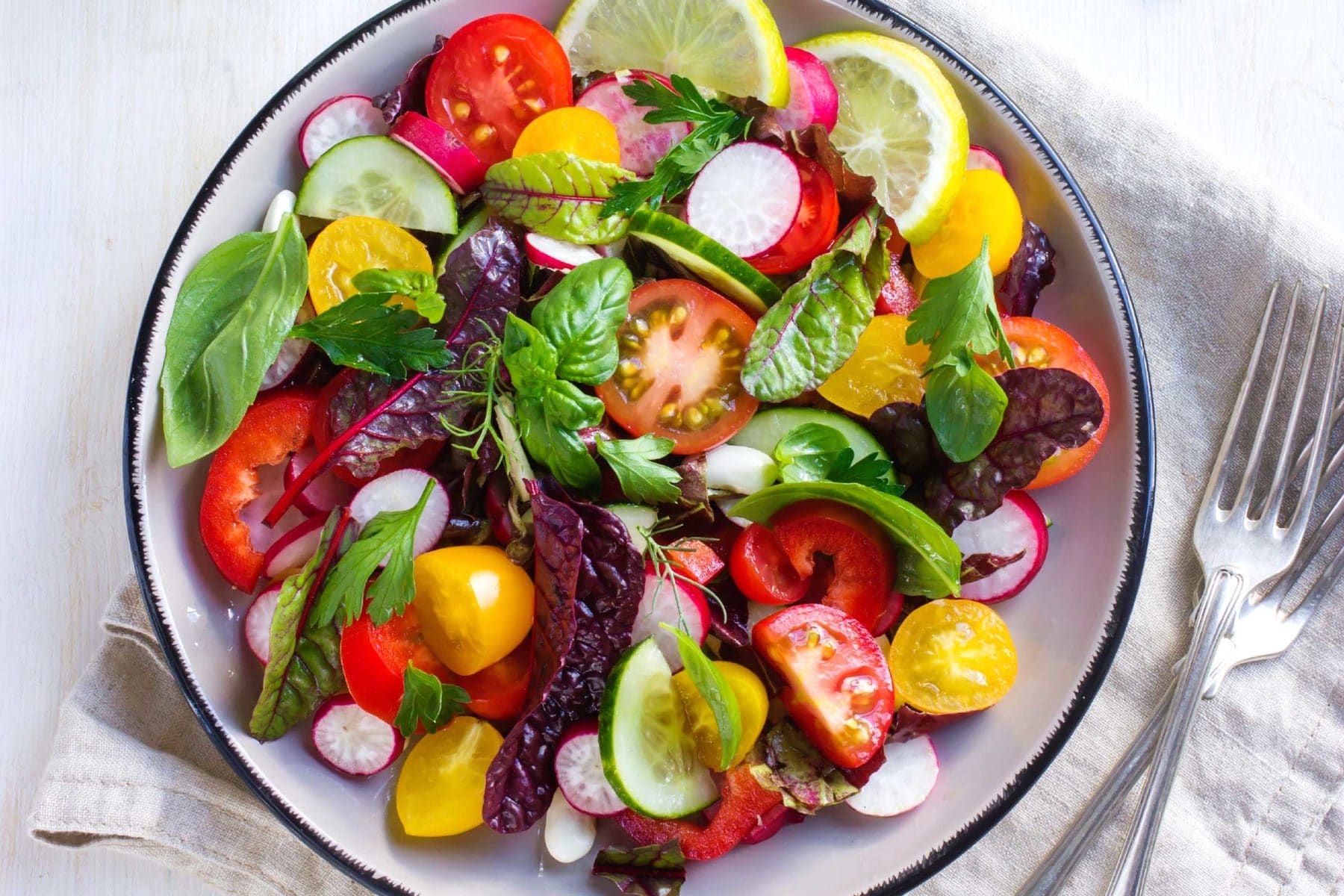A vegan diet is a diet where one consumes only plant-based foods.
Any animal products are prohibited such as meat, dairy products, eggs, fish and seafood. People choose to become vegans for either environmental, ethical, or health reasons. When done correctly, a vegan diet can lead to a trimmer waistline and improved blood sugar control. However, it’s important to eat a well-balanced diet as it is trickier to get all the nutrients your body needs on a vegan diet alone.
Some of the health benefits of becoming a Vegan include:
- Improved sports performance
- Allows for easier weight loss
- Reduces cholesterol levels
- Healthier skin
- Longer life
- Reduction of body odors
- Reduced risk of cardiovascular disease
- Slows down the progression of cancer and/or reduces the incidence of cancer
- A decrease in the number of migraines
Many people choose to adopt veganism not only for the health benefits but also to reduce one’s ecological footprint. Meat production has a much larger ecological footprint than vegetable production. For example, to produce one-quarter pound of beef, it takes 14.6 gallons of water, 13.5 pounds of feed, 64.5 square feet of land, 0.126 pounds of methane, and 4 pounds of total carbon footprint. A vegan diet not only reduces greenhouse gases and other pollution by 50% but also cuts the use of land by 76%.
However, vegans also need to be mindful of where they are getting their food. There is a less environmental impact to get lamb from a farm across the road than to eat an avocado that has traveled from halfway across the world. Another problem with veganism is the import of nutrient-rich plant-based foods such as avocados and quinoa, whose rising prices have left impoverished locals struggling to feed themselves.
Though it may sound restrictive, there is actually a huge variety of foods available to vegans:
- For dairy products, you can replace milk or yogurt with vegetable products such as almond milk or soy yogurt.
- To make cakes you will find many vegan recipes that will allow you to replace eggs and butter. For example, you can replace the eggs with banana, applesauce, or flax seeds.
- Legumes such as lentils or beans are high in protein and will allow you to replace meat. You can make lentil hamburgers or soy vegan steaks.
- Seitan, tofu, and tempeh are rich in protein. To replace meat, seitan is often used, it can replace a roast or skewers. You can be creative with tofu, such as marinated tofu cubes in the oven, or tofu quiches, fried tofu fritters, tofu cubes in a salad.
In addition, there are many ingredients that you can use to enhance your dishes:
- Black salt
- Coconut milk
- Soy sauce
- Vegetable broth
- Ketchup or mustard
When shopping for vegetarian and vegan products, check labels carefully as some items might contain eggs or dairy products. Other items may also contain animal by-products used in processing or as additives.
Yes, You Can:
- Cereal
- Vegetable
- Fruits
- Legume
- Nuts and seeds
- Seitan, tofu, tempeh
- Nut, oat, rice, coconut, or soy milk and yogurts
No, You Can’t
- Meat
- Fish
- Seafood
- Eggs and dairy products
- All food of animal origin (such as gelatin, certain beers and wines, and other animal by-products used in food processing or as food additives)


